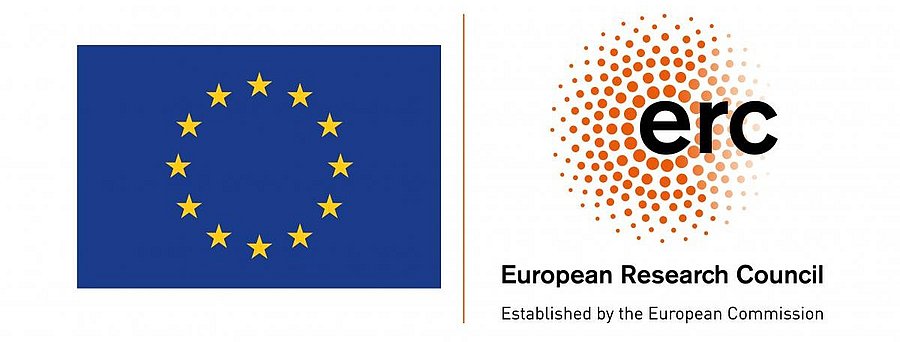European Research Council
ERC Advanced Grant
Förderkennzeichen: ERC-2020-ADG 101019972
Project Initiator:
- Pfeiffer, Ullrich, Prof. Dr. rer. nat.
Lehrstuhl für Hochfrequenzsysteme in der Kommunikationstechnik
Bergische Universität Wuppertal
Project Objectives:
The terahertz (THz) frequency range is widely considered as the most challenging and under-developed frequency range due to the lack of technologies to effectively bridge the transition region between microwaves (below 100 GHz) and optics (above 10,000 GHz). Although THz radiation would be perfect for material identification and as a safe alternative to X-rays for producing high resolution images of the interior of opaque objects, first a fundamentally new approach is needed to establish novel devices and techniques.
Rarely considered for its complexity, the so-called “light field” consists of all light rays in 3-D space, flowing through every point and in every direction. Thus a light field camera not only records color and brightness like a 2-D imaging sensor does, but also the direction/angle of all the light rays arriving at the sensor. The beauty of this spatio-directional information is that one can localize hidden objects and calculate their covered three- dimensional shape. So what’s the catch? For any practical means, the natural ambient THz radiation is by far too weak, and THz light-fields need to be created artificially.
Here I propose an innovative pathway empowered by massively scaled THz source and detector arrays, which will bring forth the science of computational light-fields to THz 3-D see-through imaging. Starting with newfangled THz source-arrays, I create the missing temporal modulated light-fields directly at the source and investigate a diffraction inclusive THz light-field system theory, architecture and algorithms. This is combined with innovative THz integrated circuits to research real-time THz light-field components. Although the far-reaching objectives incorporate a high risk due to the complexity of the approach connecting physical, computational, and optical sciences with engineering approaches, this is offset by the promise of major breakthroughs to create substantial value for both science and the global economy.
Informations
Project duration:
Oct. 2021 - Sep. 2026
Funding:
H2020-EU.1.1. - EXCELLENT SCIENCE - European Research Council (ERC)
Budget
2.477.947,00 €
Tags
Terahertz (THz) technology, electronics, integrated circuits, silicon process technology,
THz camera, THz transmitter/receiver arrays, see- through imaging, light-field, plenoptics,
computational imaging, 3-D imaging, MIMO

